Useful Travel Tips & Phrases to Know Before Visiting Japan
With its fascinating blend of ancient history, cultural traditions, modern marvels and stunning natural landscapes, Japan is an incredible country to explore. But if you want to get the most out of your trip to Japan, it’s important to be aware of and respect Japanese customs and social etiquette. From greetings and gift-giving to train, temple and dining etiquette, we guide you through the most essential travel tips for visiting Japan. We also share some of the most useful Japanese phrases to learn that will help you get around the country and connect with the locals.
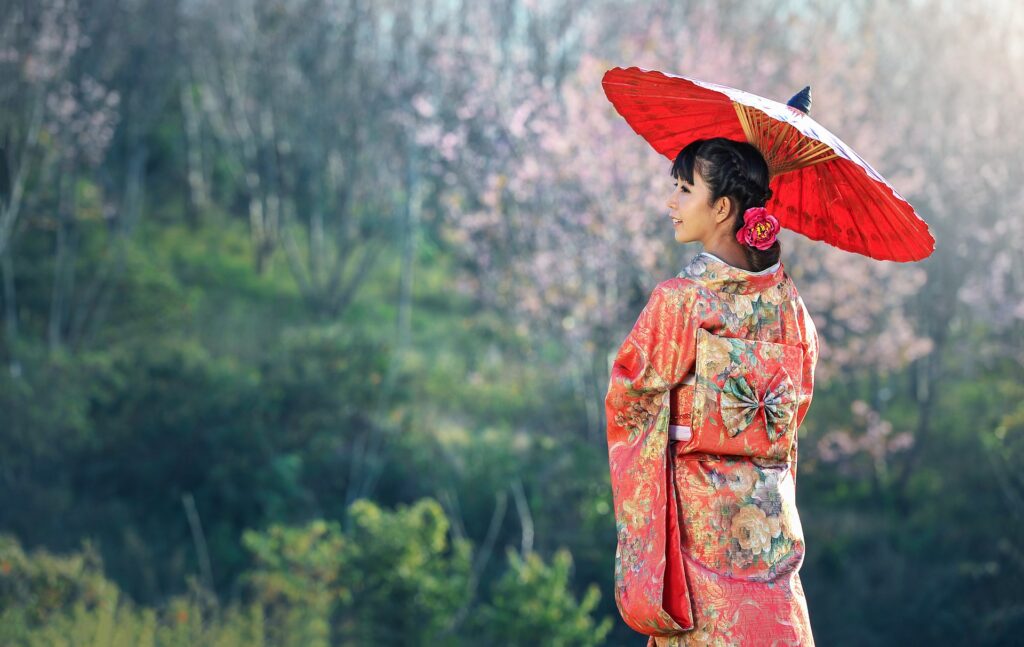
Japan : The history and charm of Japan are yours to discover. Enjoy a traditional tea ceremony in Tokyo and visit Kamakura’s Great Buddha. View iconic Fuji and stroll the beautiful gardens of the Hase Kannon Temple. Japan Top Ten Things To Do Journey to the Imperial Palace Plaza, Tokyo Tower and Asakusa Temple. Enjoy the verdant grounds of Meiji-Jingu Shrine and then take part in a traditional tea ceremony.
1. Tips to greet people in Japan
Greetings are essential for showing respect in Japan, so when visiting Japan, you should be aware of the customs and phrases to use in greetings.
Bowing
Bowing is the most common form of greeting in Japan. The depth and duration of the bow depend on the situation and the relationship. A slight nod of the head, called “eshaku,” is suitable for informal situations or when greeting someone of equal or lower status. A deeper bow, called “keirei,” is used for more formal situations or when greeting someone of higher status. You don’t need to get your bow perfect, but any attempt will be appreciated as a sign of respect and effort to follow Japanese customs.
Handshakes
Handshakes are less common in Japan but may be used with international visitors. If a Japanese person initiates a handshake, keep the handshake brief with a light grip – this isn’t the time for long or vigorous handshaking!
What to say
Along with bowing, you can use these useful Japanese phrases, depending on the time of day.
おはようございます (Ohayou gozaimasu) – “Good morning” (polite)
おはよう (Ohayou) – “Good morning” (informal, among friends or family)
こんにちは (Konnichiwa) – “Hello” or “Good afternoon”
こんばんは (Konbanwa) – “Good evening”
When addressing someone in Japan, use their last name followed by the honorific “さん” (san), which is a neutral, respectful term. For example, if someone’s last name is Tanaka, you would address them as “Tanaka-san.” Using first names is generally reserved for close friends or family members.
2. Avoid physical contact
Japanese culture values personal space. Avoid kissing, hugging, or other forms of physical contact or gestures as it might make people uncomfortable.
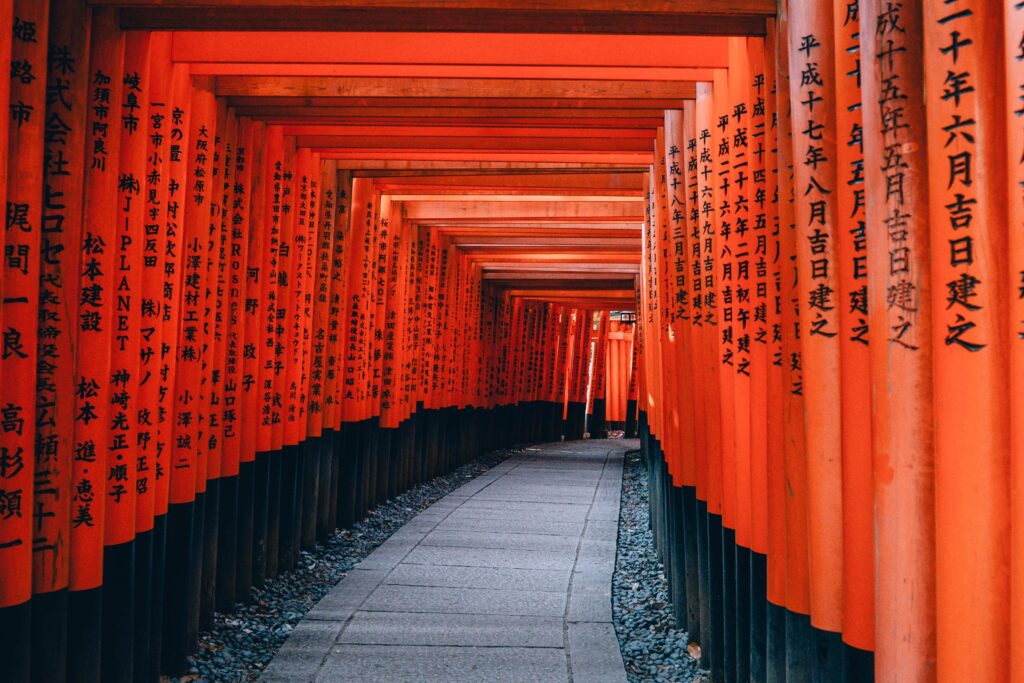
3. Remove your shoes
You should always remove your shoes when entering someone’s home, traditional establishments, and temples or shrines. You may be offered indoor slippers to wear instead. A good tip is to wear sandals or slip-ons when traveling around Japan, to make it easy to take off your shoes whenever necessary.
4. Gift-giving
Gifts are an important part of Japanese culture, especially when visiting someone’s home. If you’d like to offer a token of appreciation, bring a small, wrapped gift. If you are the one receiving a gift, it’s customary to wait until later to open it, unless your host insists otherwise.
5. Dining etiquette
Japan is a foodie paradise, with a wide variety of dishes to try from sushi, tempura and ramen to kaiseki, okonomiyaki, and much more. When sitting down to a meal, wait for the host to say “itadakimasu” (I gratefully receive) before starting your meal. Hold your chopsticks properly and avoid pointing them at others or sticking them upright in your food. Slurping noodles is considered polite, but avoid making noise when eating other dishes. When finished, say “gochisosama” (thank you for the meal) to show appreciation.
6. No tipping
Tipping is not customary in Japan and can even be seen as offensive. Service fees are often included in the bill, so there’s no need to add any extra tips.
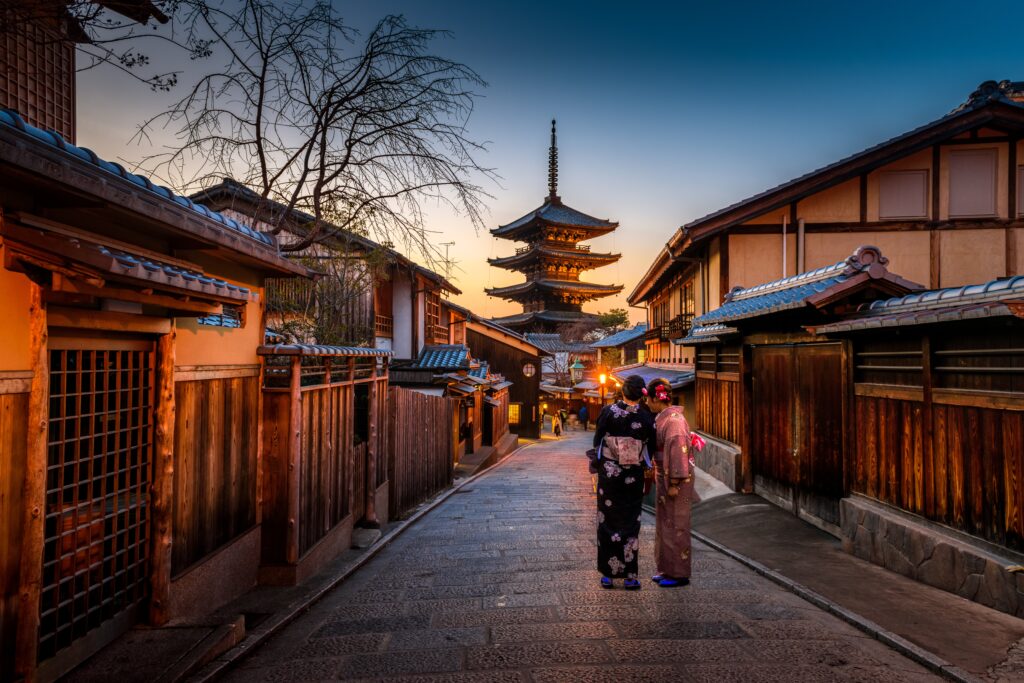
7. Tone it down
One of the most useful tips when visiting Japan is to follow the local lead and avoid loud conversations and phone calls in public spaces, including on trains and public transport. Making phone calls in enclosed public spaces, like trains, is usually considered rude.
8. Photography
Be respectful when taking photos, especially at religious sites, and always ask for permission before taking pictures of people.
9. Bathing etiquette at onsen or sento
Visiting an onsen, sento or public bath is one of the best things to do when visiting Japan – but it’s important to follow the proper etiquette. Always wash before entering the bath. Keep your hair out of the water and don’t use soap or shampoo in the communal bath area. Tattoos are often frowned upon in Japanese culture, so be prepared to cover up any tattoos or seek out tattoo-friendly baths.
10. Temple etiquette
When visiting the beautiful temples, shrines and cultural sites of Japan, always be sure to follow the specific rules and customs at each site. In general, be careful to dress modestly, avoid loud conversations, and remove your shoes.
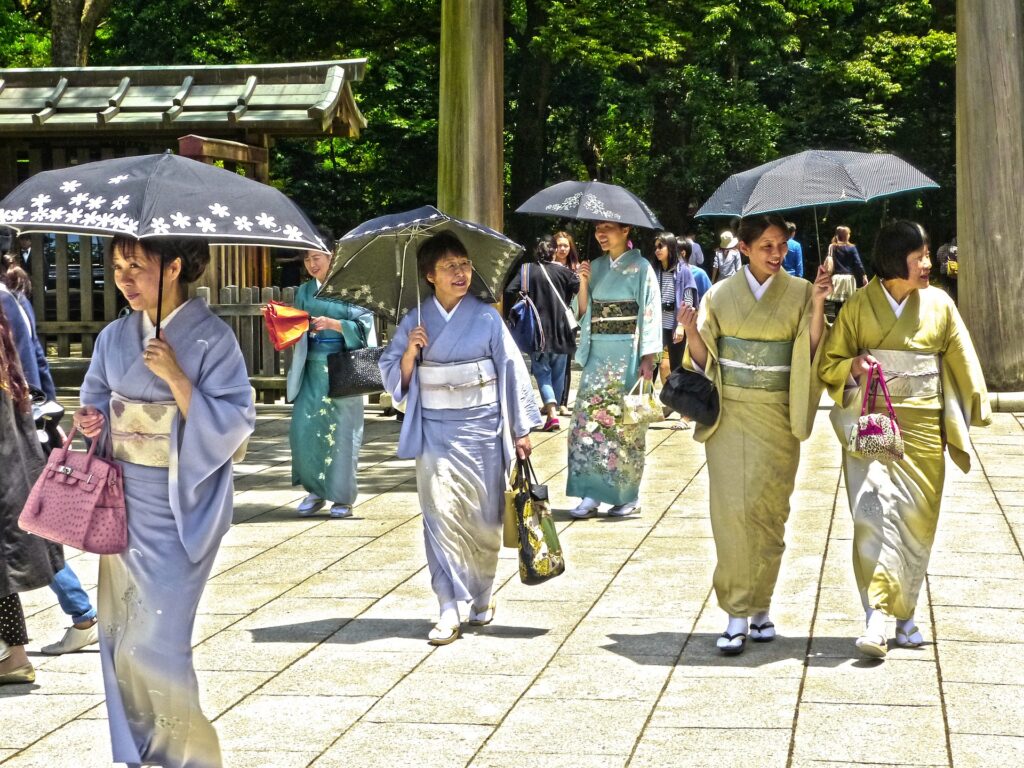
11. Tips for taking trains in Japan
Japan is famed for its speedy and convenient public rail network, so here are some essential tips to help you navigate it.
Get a Japan Rail Pass (JRP)
If you plan to travel around Japan on the trains, it’s best to get a Japan Rail Pass (JRP). You can get a pass for unlimited travel on most Japan Rail trains, including the iconic shinkansen (bullet train), and it works out to be quite a cost-effective way to explore the country.
Get familiar with the different train types
When traveling by train, you’ll want to get to know the different train types including local, express, and shinkansen trains. This can be overwhelming for a first-time visitor, but the train stations in Japan tend to be very clean and orderly, with lots of signs on platforms and train maps that show stops, directions, and train types.
Trains aren’t 24/7
It’s important to note that trains in Japan stop running around midnight, so be sure to plan your evenings so you don’t get stranded.
Be punctual
Our top tip is to always be on time! Japanese trains are known for their punctuality, so make sure you arrive at the station early to avoid missing your train.
When you travel with Donna Salerno Travel, you’ll get to ride the famous bullet trains, and your Travel Director will take care of all the navigation for you. They’ll sort out your tickets and make sure you get to the right platform and seats, so you can kick back and enjoy the ride without worry.
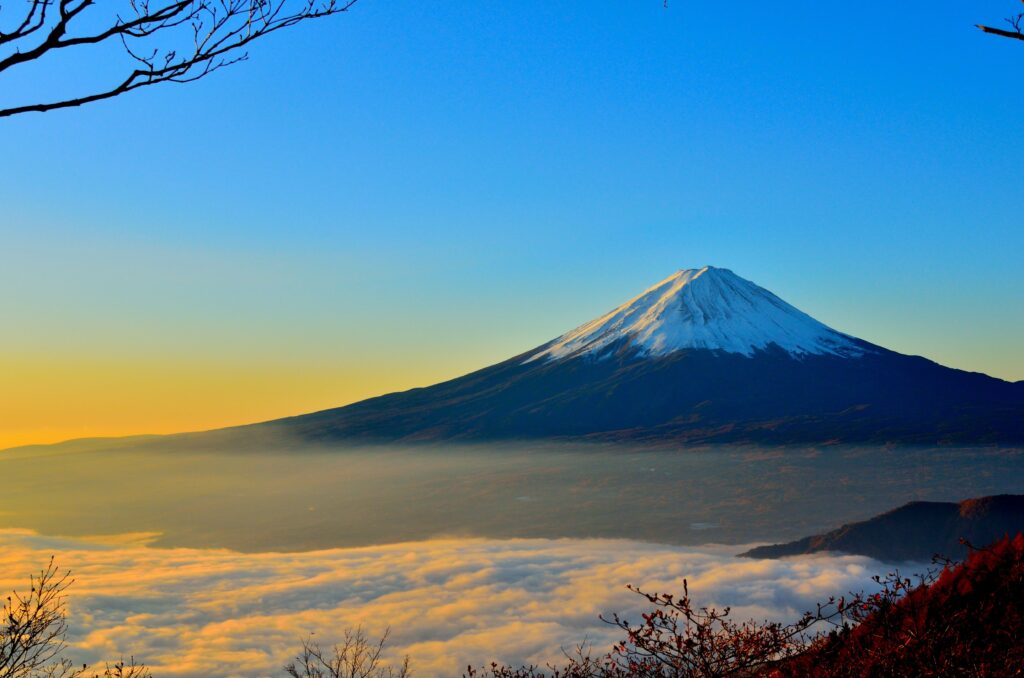
12. Carry Japanese yen
While credit cards are widely accepted in Japan, many smaller restaurants and establishments still prefer cash. Make sure you have enough Japanese yen on hand and carry small coins for vending machines and public transport.
13. Explore the konbini
One of our favorite tips is to go to the konbini, the Japanese convenience stores. You can find almost anything here from food and drink to ATMs and Wi-Fi, and they can be a lifesaver in many situations.
14. Learn some useful Japanese phrases
While many Japanese people can speak some English, it’s important to learn a few essential Japanese phrases to help you navigate the country and show respect for Japanese culture. Here are some of the most useful Japanese phrases to learn first.
こんにちは (Konnichiwa) – “Hello” or “Good day”
Use this as a greeting when meeting people during the day.
ありがとうございます (Arigatou gozaimasu) – “Thank you”
A polite way to express gratitude. You can also use the more casual ありがとう (Arigatou) with friends or those close to you.
すみません (Sumimasen) – “Excuse me” or “I’m sorry”
Use this phrase to get someone’s attention, apologize, or when you accidentally bump into someone.
はい (Hai) – “Yes”
いいえ (Iie) – “No”
英語を話せますか?(Eigo o hanasemasu ka?) – “Do you speak English?”
This is useful when you can only get so far with basic Japanese phrases.
どこですか?(Doko desu ka?) – “Where is…?”
Handy when asking for directions. Add the name of the place before “は” (wa). For example, “東京タワーはどこですか?” (Toukyou tawā wa doko desu ka?) – “Where is Tokyo Tower?”
いくらですか (Ikura desu ka?) – “How much does it cost?”
This is the phrase to use when shopping or asking about prices.
トイレはどこですか?(Toire wa doko desu ka?) – “Where is the restroom?”
An essential!
駅までどうやって行きますか? (Eki made douyatte ikimasu ka?) – “How do I get to the station?”
If you’re catching trains in Japan, keep this phrase up your sleeve.
おいしい (Oishii) – “Delicious”
A great way to compliment your meal and express your enjoyment of the food.
Do you know any useful Japanese phrases or travel tips for visiting Japan? Let us know in the comments below!
#DonnaSalernoTravel #LuxuryTravelWorldwide #Japan
Source; Trafalgar

Donna
Donna Salerno Travel
888-777-7820
